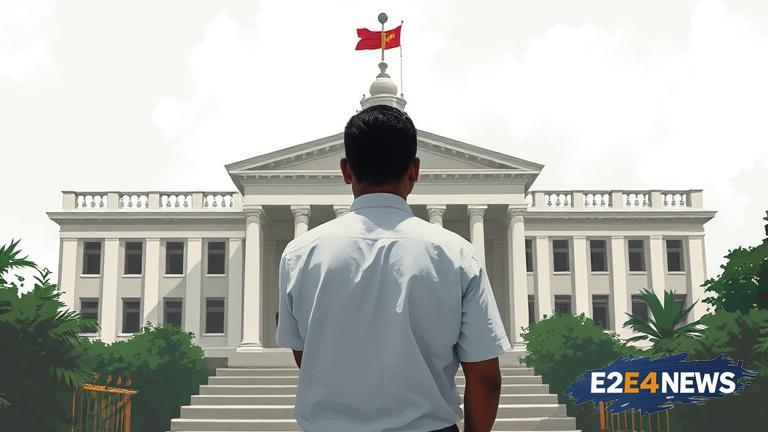The Sri Lankan justice system has come under scrutiny for its practice of punishing individuals before they are convicted of a crime. This phenomenon has raised concerns among human rights activists, lawyers, and citizens, who argue that it violates the fundamental principles of justice and the rule of law. The issue has sparked intense debates, with many calling for reforms to ensure that the rights of the accused are protected. In recent years, there have been several high-profile cases where individuals have been subjected to punishment, including detention and harassment, before being found guilty. These cases have highlighted the need for a more nuanced approach to justice, one that balances the need to maintain public order with the need to protect individual rights. The Sri Lankan government has faced criticism for its handling of these cases, with many arguing that it has failed to uphold the principles of justice and fairness. The issue has also sparked concerns about the independence of the judiciary, with some arguing that the courts are not doing enough to protect the rights of the accused. Despite these concerns, there are many who argue that the justice system is working as intended, and that punishment before conviction is sometimes necessary to maintain public order. However, human rights activists argue that this approach is misguided, and that it can lead to miscarriages of justice and the erosion of trust in the justice system. The issue is complex, and there are no easy solutions. However, it is clear that the Sri Lankan justice system needs to strike a balance between punishing those who break the law and protecting the rights of the accused. This requires a nuanced approach, one that takes into account the complexities of each case and the need to uphold the principles of justice and fairness. The government, the judiciary, and civil society all have a role to play in ensuring that the justice system is fair, independent, and effective. Ultimately, the goal should be to create a justice system that is fair, transparent, and accountable, one that upholds the principles of justice and the rule of law. The Sri Lankan justice system has a long history, dating back to the colonial era. Over the years, it has evolved to incorporate various legal traditions and principles. However, despite these developments, the system still faces many challenges, including corruption, delays, and a lack of resources. These challenges can make it difficult for the system to function effectively, and can lead to injustices and human rights violations. The issue of punishment before conviction is just one example of the challenges facing the justice system. Other issues, such as torture, arbitrary detention, and the use of forced confessions, are also major concerns. To address these challenges, the government and the judiciary need to work together to implement reforms and strengthen the justice system. This can involve increasing resources, improving training for judges and lawyers, and implementing new laws and policies to protect human rights. Civil society also has a crucial role to play, by advocating for justice and human rights, and by providing support to victims of injustice. The international community can also provide support and guidance, by sharing best practices and providing technical assistance. In conclusion, the issue of punishment before conviction in Sri Lanka is a complex one, with many different perspectives and challenges. However, by working together, it is possible to create a justice system that is fair, independent, and effective, one that upholds the principles of justice and the rule of law. The government, the judiciary, and civil society all have a role to play in ensuring that the justice system is fair and effective, and that the rights of all individuals are protected. The issue is not just a national one, but also has regional and international implications. The Sri Lankan justice system is part of a broader regional and international framework, and its practices and procedures have implications for human rights and the rule of law globally. Therefore, it is essential that the international community is involved in efforts to reform and strengthen the justice system, and that best practices and lessons learned are shared across borders. By working together, it is possible to create a more just and equitable world, one where the rights of all individuals are protected and the principles of justice and the rule of law are upheld.
